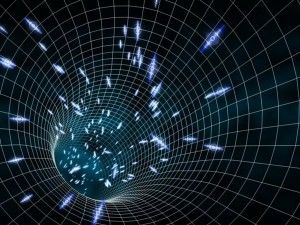Circa 2012
Imagine a clock that will keep perfect time forever or a device that opens new dimensions into quantum phenomena such as emergence and entanglement.
Imagine a clock that will keep perfect time forever, even after the heat-death of the universe. This is the “wow” factor behind a device known as a “space-time crystal,” a four-dimensional crystal that has periodic structure in time as well as space. However, there are also practical and important scientific reasons for constructing a space-time crystal. With such a 4D crystal, scientists would have a new and more effective means by which to study how complex physical properties and behaviors emerge from the collective interactions of large numbers of individual particles, the so-called many-body problem of physics. A space-time crystal could also be used to study phenomena in the quantum world, such as entanglement, in which an action on one particle impacts another particle even if the two particles are separated by vast distances.
A space-time crystal, however, has only existed as a concept in the minds of theoretical scientists with no serious idea as to how to actually build one – until now. An international team of scientists led by researchers with the U.S. Department of Energy (DOE)’s Lawrence Berkeley National Laboratory (Berkeley Lab) has proposed the experimental design of a space-time crystal based on an electric-field ion trap and the Coulomb repulsion of particles that carry the same electrical charge.
